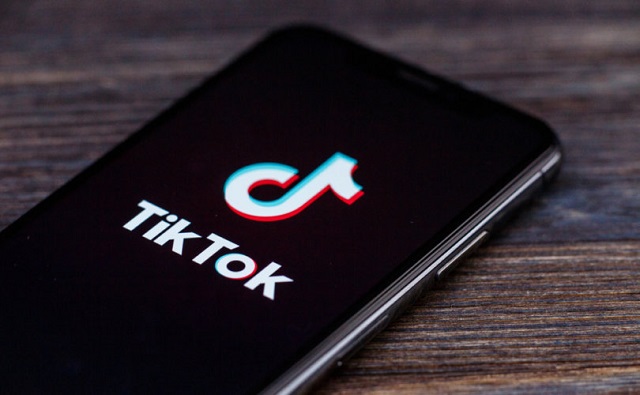Business
Report: Chinese government considering sale of TikTok to Elon Musk, possible X merger

From LifeSiteNews
“A potential high-profile deal with one of (returning President Donald) Trump’s closest allies holds some appeal for the Chinese government, which is expected to have some say over whether TikTok is ultimately sold”
Chinese government officials are considering the possibility of allowing TikTok to be sold to X owner Elon Musk ahead of a deadline to sever the social video platform from its Chinese government-linked ownership, according to a report published Monday by Bloomberg.
Last April, a law signed by President Joe Biden and supported by many in both parties, required TikTok to be sold by January 19 or shut down due to Chinese parent company ByteDance’s links to the ruling Chinese Communist Party (CCP) and its military and surveillance operations, sparking national security concerns over the Chinese regime’s access to the personal data of TikTok’s American users.
ByteDance challenged the law, but last week, the U.S. Supreme Court signaled in oral arguments that it would not block the law, although no ruling has yet been issued, with the deadline for divestment just days away.
On Monday, Bloomberg reported that “people familiar with the matter” said several options are now being considered on a preliminary basis, one of which would involve Musk purchasing TikTok and possibly merging it with X. That could drastically grow the latter platform’s user base and give Musk vast troves of data with which to improve his artificial intelligence project xAI.
“A potential high-profile deal with one of (returning President Donald) Trump’s closest allies holds some appeal for the Chinese government, which is expected to have some say over whether TikTok is ultimately sold,” according to the report. Musk vocally and financially supported Trump in the 2024 election and will be advising the new administration on spending cuts.
Musk, who opposed banning TikTok, has not commented on the report. ByteDance dismissed it as “pure fiction,” but Bloomberg said that “It’s not clear how much ByteDance knows about the Chinese government discussions.”
While at first glance it appears unlikely that the Chinese government would be willing to give a new owner outside its control the opportunity to examine TikTok’s collection and sharing of user data, the report suggests the regime may see it as a “potential area for reconciliation” ahead of negotiations with the Trump administration over issues such as trade and tariffs.
American politicians on both sides have inconsistent records on support for the video app. Last February, Biden’s reelection campaign joined the app despite his own administration labeling it a national security threat. White House National Security Council spokesman John Kirby admitted at the time that “there are still national security concerns about the use of TikTok on government devices and there’s been no change to our policy not to allow that,” but declined to comment on the propriety of his boss using the app.
In the final year of Trump’s first term, meanwhile, he levied sanctions against TikTok and supported banning it as well, but during his 2024 campaign reversed his position days after meeting with GOP megadonor and TikTok shareholder Jeff Yass. In December, Trump asked the Supreme Court to delay the divestment deadline until after he took office, arguing that he “alone possesses the consummate dealmaking expertise, the electoral mandate, and the political will to negotiate a resolution to save the platform while addressing the national security concerns expressed by the government.”
Business
“We have a deal”: Trump, Xi strike breakthrough on trade and fentanyl

President Trump declared “we have a deal” Thursday after meeting with Chinese President Xi Jinping in South Korea, describing their nearly two-hour summit as “a 12 out of 10.” Speaking aboard Air Force One, Trump told reporters the two leaders reached a sweeping agreement to stabilize trade relations and address the deadly fentanyl crisis. “We have a deal. Now, every year we will renegotiate the deal,” Trump said. “But I think the deal will go on for a long time.”
According to Trump, Xi agreed to suspend for one year China’s export restrictions on products made with rare-earth and critical minerals — materials essential to the production of semiconductors, batteries, and high-tech magnets. “There’s no roadblock at all on rare earth,” he said. “It’s a one-year deal that I think will be very routinely extended.” In exchange, Trump said the U.S. would lower the average tariff rate on Chinese imports from 57.6% to 47.6%. Trump emphasized that Xi also committed to intensifying China’s crackdown on fentanyl exports, which have been a major driver of overdose deaths in the United States. “We agreed he’s going to work very hard to stop the flow,” Trump said. “I think you’re going to see a big difference.”
Beijing also pledged to resume “tremendous” purchases of American soybeans, reversing its earlier retaliatory halt. In a Truth Social post later Thursday, Trump said China had additionally agreed to begin purchasing U.S. oil and gas, noting that “a very large-scale transaction may take place concerning the purchase of oil and gas from the Great State of Alaska.” The president confirmed that Taiwan was not discussed during the meeting but said both sides talked about working together to bring an end to the war in Ukraine. “We didn’t really discuss the Russian oil,” he added. “We discussed working together to see if we can get that war finished.”
The meeting, held at a South Korean air base, marked the first in-person exchange between Trump and Xi since his return to the White House. The two leaders greeted each other warmly, with Xi telling Trump, “Great pleasure to see you again.” Xi praised Trump’s leadership, saying, “China’s development goes hand in hand with your vision to make America great again,” and added that the two nations “are fully able to help each other succeed and prosper together.” Much of Thursday’s agreement builds upon a framework negotiated earlier this month in Kuala Lumpur between U.S. and Chinese trade teams.
Trump said he plans to visit China in April, calling the meeting “amazing” and “an outstanding group of decisions.” He did not say whether the pending TikTok deal was discussed. The renewed cooperation on fentanyl follows years of tension over China’s role in the U.S. opioid crisis. The CDC reports the drug has killed nearly 330,000 Americans in the past five years — roughly one in every 1,000 people. Trump has long pressed Beijing to stop the export of precursor chemicals used to make fentanyl, arguing the problem is both moral and economic. “They make $100 million selling fentanyl into our country,” Trump said last week. “They lose $100 billion with the 20% tariff. It’s not a good business proposition.”
Trump left Thursday’s summit expressing confidence that the new arrangement marked a major step forward. “On the scale of 0 to 10, with 10 being the best, I would say the meeting was a 12,” he said. “It was an amazing meeting — and I think this deal will go on for a long time.”
Business
Canada’s attack on religious charities makes no fiscal sense

This article supplied by Troy Media.
 By Lee Harding
By Lee Harding
Ottawa is targeting the charitable tax status of faith-based groups. The fallout could hit every Canadian community
The possibility that Canadian religious organizations will lose their charitable status has never been more real.
On Jan. 6, Parliament’s Standing Committee on Finance recommended numerous changes, including Recommendation 430: “Amend the Income Tax Act to define a charity, which would remove the privileged status of ‘advancement of religion’ as a
charitable purpose, meaning faith-based organizations could lose access to tax benefits.”
The B.C. Humanist Association, a secular advocacy group, has long advocated for removing religion as a stand-alone charitable purpose. That idea is reflected in Recommendation 430. Before adopting such a proposal, the finance committee should have reviewed a study published last November by Cardus, a Canadian think tank focused on faith, civil society and public policy.
The Cardus study examined 64 Christian congregations in various provinces to assess the socio-economic value of their impact. It suggested that congregations make an $18.2-billion socioeconomic contribution to Canadian society, well in excess of tax exemptions and rebates equal to $1.7 billion. The net positive result of $16.5 billion—a “halo effect”—is more than 10
times the value of the tax exemptions.
The implications are clear: society will be worse off if the loss of religious charitable status leads to a drop of more than 10 per cent in donations to affected charities. Why risk it?
When congregations unravel, society follows in ways that go beyond mere economics. As Cardus explains, churches often provide space, often at no cost or below-market rates, for cultural and artistic events, recreation and sports, education, social services and other community activities. They also deliver addiction recovery, counselling and mental-health support, child care, refugee sponsorship and settlement services for newcomers, education and food banks.
Whether institutionally or personally, helping people is often an integral extension of religious belief. A 2012 Statistics Canada study found that the 14 per cent of Canadians who attend church weekly offer 29 per cent of the nation’s volunteer hours and provide 45 per cent of all charitable donations.
No party has explicitly endorsed removing charitable status for religion. But the Bloc Québécois, NDP and Liberals dominated the committee recommendation to remove religion as a charitable purpose. The Conservative Party, which held a minority on the committee, was alone in opposing it outright.
Randy Crosson, executive director of Freedoms Advocate, is organizing a national pushback. In a speech given Oct. 1 to the Regina Civic Awareness and Action Network, he said the recommendation was a “shot across the bow” to gauge public reaction.
“This isn’t just about donors losing tax receipts. It’s about churches losing buildings, staff losing jobs, and ministries being forced to shut down due to reduced donations. This is a direct threat to the future of faith in Canada, and it’s happening fast,” Crosson explained in an online video.
Crosson said religion enjoys less participation and more opposition than in previous decades. Church attendance has slumped since the pandemic, and some Canadians continue to criticize churches for their historical involvement in residential schools.
The Quebec government has also pursued a strongly secular approach to public policy. In 2019, Quebec’s Bill 21 used the notwithstanding clause of the Constitution to ban public servants from wearing religious symbols, such as hijabs, turbans or crucifixes. In August, Quebec’s secularism minister, Jean François Roberge, said that the “proliferation of street prayer is a serious and sensitive issue” and promised to bring legislation to ban it.
That’s why Crosson is urging religious leaders to launch a three-part campaign.
“First, an open letter drafted with legal and faith leaders to show government and the media the real value of the church in Canadian society. Second, mass signatures. We need churches, leaders and individuals to sign the letter,” Crosson says in a video appeal. “And third, a national documentary based on the open letter. This will be released publicly and spread through churches, media and social platforms.”
The Frontier Centre for Public Policy has also come out publicly against the proposed change. A report by Senior Fellow Pierre Gilbert entitled Revoking the Charitable Status for the Advancement of Religion: A Critical Assessment makes a case for the status quo, pointing to benefits such as those mentioned above.
For now, at least, the idea is on hold. A published email response by Liberal MP Karina Gould, the chair of the House of Commons’ Standing Committee on Finance, said the charitable status of faith-driven non-profits will not be revoked in the Nov. 4 budget.
That’s good news. Faith is a big motivator of charity, and it’s hard to see how a less charitable society is a better one. If governments want to balance the books, they should rein in spending, not put faith-based charities at risk.
Lee Harding is a research fellow for the Frontier Centre for Public Policy.
Troy Media empowers Canadian community news outlets by providing independent, insightful analysis and commentary. Our mission is to support local media in helping Canadians stay informed and engaged by delivering reliable content that strengthens community connections and deepens understanding across the country
-

 Internet2 days ago
Internet2 days agoMusk launches Grokipedia to break Wikipedia’s information monopoly
-

 Business2 days ago
Business2 days agoBill Gates walks away from the climate cult
-

 Alberta1 day ago
Alberta1 day agoNobel Prize nods to Alberta innovation in carbon capture
-

 Business14 hours ago
Business14 hours agoCanada’s attack on religious charities makes no fiscal sense
-

 Censorship Industrial Complex1 day ago
Censorship Industrial Complex1 day agoPro-freedom group to expose dangers of Liberal ‘hate crime’ bill before parliamentary committee
-

 Health1 day ago
Health1 day agoLeslyn Lewis urges Canadians to fight WHO pandemic treaty before it’s legally binding
-

 International3 hours ago
International3 hours agoPrince Andrew banished from the British monarchy
-

 Business1 day ago
Business1 day agoFord’s Liquor War Trades Economic Freedom For Political Theatre










